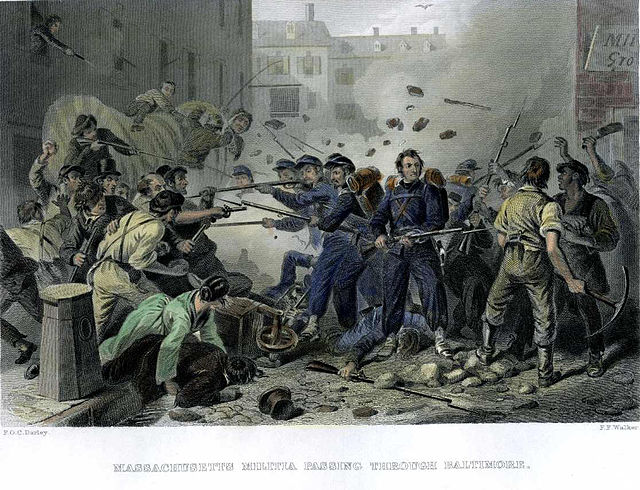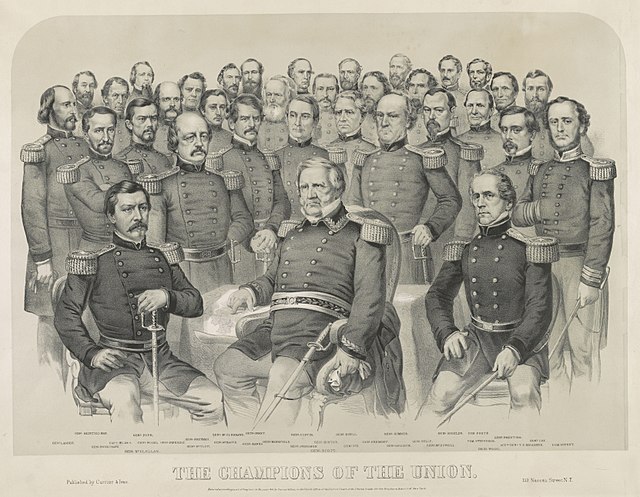Benjamin Franklin Butler was an American major general of the Union Army, politician, lawyer, and businessman from Massachusetts. Born in New Hampshire and raised in Lowell, Massachusetts, Butler was a political major general of the Union Army during the American Civil War and had a leadership role in the impeachment of U.S. President Andrew Johnson. He was a colorful and often controversial figure on the national stage and on the Massachusetts political scene, serving five terms in the U.S. House of Representatives and running several campaigns for governor before his election to that office in 1882.
Butler c. 1870–80
Engraving depicting the Baltimore riot of 1861
Portrait of Butler in his Union Army uniform, Brady-Handy 1862–1865
General Butler after the battle of September 29, 1864, sketched by William Waud (Harper's Weekly, October 22, 1864)
During the American Civil War, the United States Army, the land force that fought to preserve the collective Union of the states, was often referred to as the Union Army, the Grand Army of the Republic, the Federal Army, or the Northern Army. It proved essential to the restoration and preservation of the United States as a working, viable republic.
Recruiting poster for the 1st New York Mounted Rifles Regiment
General George B. McClellan with staff and dignitaries, including from left to right: Gen. George W. Morell, Lt. Col. A.V. Colburn, Gen. McClellan, Lt. Col. N.B. Sweitzer, Prince de Joinville (son of King Louis Philippe of France), and the prince's nephew, Count de Paris (on far right)
The champions of the Union, an 1861 lithograph by Currier and Ives
Officers of the 3rd Massachusetts Heavy Artillery Regiment defending the national capital of Washington, D.C., in 1865, the final year of the Civil War








